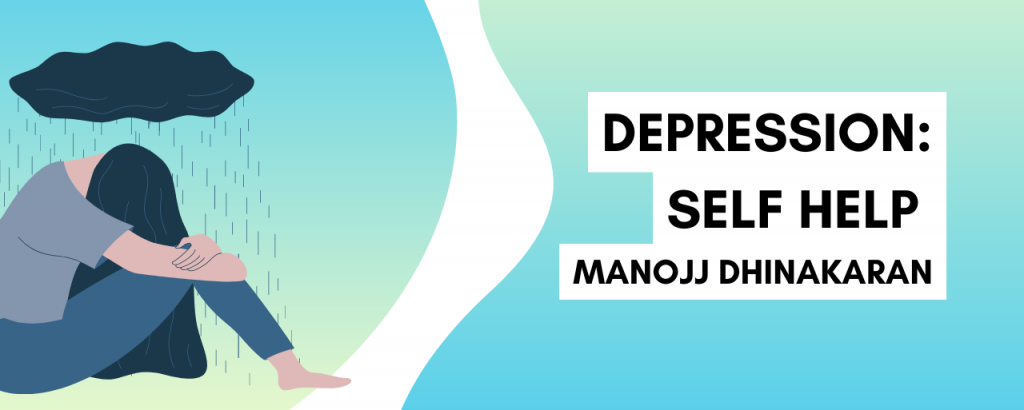Disclaimer We wish to bring to your notice that this is not a treatment regime or a therapeutic post. This is only a culmination of experiences of varied people to only give you pointers and it may or may not suit you. The post is for people with mild to moderate depression only. In any […]

We wish to bring to your notice that this is not a treatment regime or a therapeutic post. This is only a culmination of experiences of varied people to only give you pointers and it may or may not suit you. The post is for people with mild to moderate depression only. In any case, we kindly urge you to seek professional help if you think you have depression.
The first and foremost step is to accept that you are depressed if you are in accordance with the DSM-5 protocol. It is okay to be not okay. People with depression sometimes tend to be in denial about it, which makes the condition more severe. Try to be open to the possibility and seek out for help. Asking for help is not a sign of weakness, it’s indeed a sign of strength and courage.
With depression, doing even the day to day tasks may seem very hard. It can’t be cured overnight; it will take time. Taking simple efforts, one step at a time helps you to cope up with the condition much better – even small acts like takeout for dinner or a day off from your work might make a difference.
Often, people suffering from depression tend to drive themselves into exhaustion as a coping mechanism. They pull in more work as a distraction from their internal storms. This is a key indicator. Self-care at this point is highly essential. Having good and ample sleep, timely diet and most of all taking workloads that are palatable, should all be a priority. Remember you are entitled and responsible to be kind to yourself before you are to others.
Catharsis is one of the healing mechanisms that is available to us naturally. Talking it out and pouring out your emotions will help you lessen your burden drastically. Talk to a friend or someone you trust and share your feelings and emotions with them. If you find that hard, try journaling or expression painting.
Sometimes one may find the whole life meaningless and pointless, choosing to remain shackled to the darkest corners of the room, not wanting to do anything. Attempt to avoid the same. Try doing what you used to like, like listening to music or going for a walk. If you can’t decide, try making a wellness toolbox that has a list of things that you think can help you. Don’t stop in the middle of the process of doing a task from it, finish it. Which brings us to…
Set yourself a daily routine that has a list of achievable goals. Every time you complete them reward yourself with something nice, like chocolates! This can help you reinforce good positive behaviour with your wellness. For example, cleaning your room and making up your bed helps not only to clear your head but also helps you be more organised thereby reducing stress and frustration.
Despite all these efforts, if you still find it hard to cope up then seeking medical help is not a bad idea. It need not be a psychiatrist, getting help from professional counsellors could render tremendous help too. Your health does not deserve to be compromised.
“Breath. Let go. And remind yourself that this very moment is the only one you know you have for sure” – Oprah Winfrey.
Writer: Manojj Dhinakaran